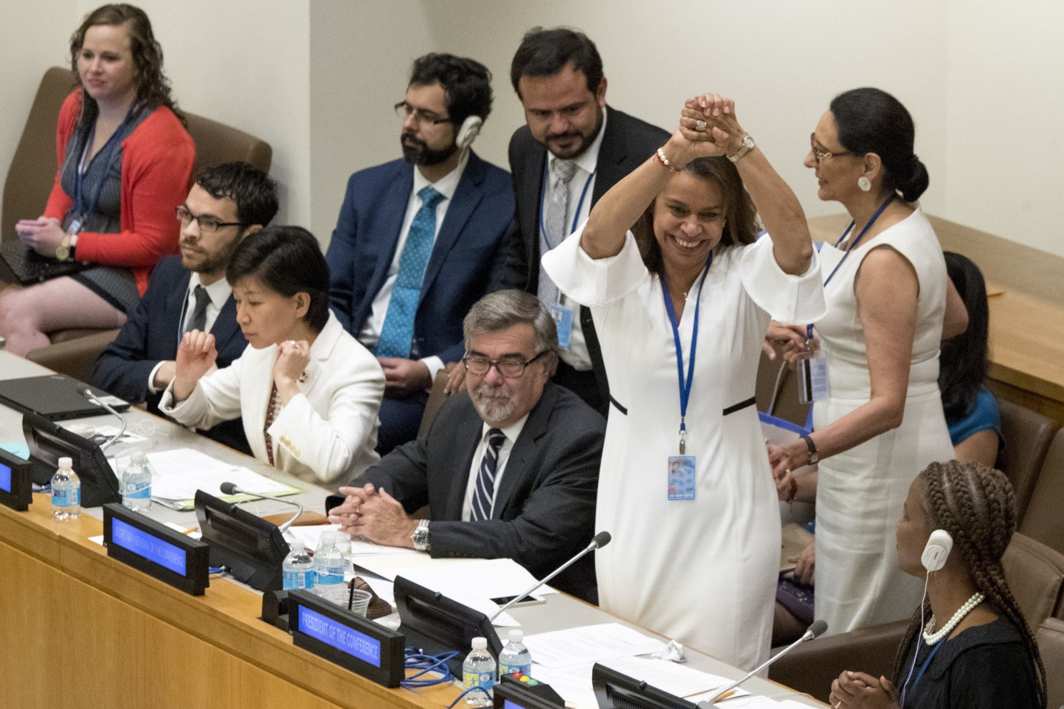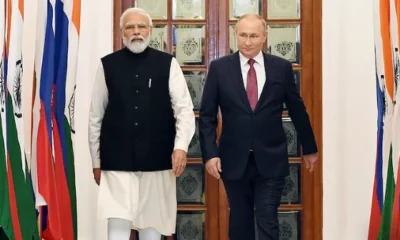[vc_row][vc_column][vc_column_text]Can not eliminate single nuclear weapon, say three powers
At a time when nuclear-armed nations remain reluctant of giving up their power of destruction, more than 120 countries approved the first ever treaty to ban nuclear weapons at United Nations on Friday.
According to reports from New York based UN headquarters, Elayne Whyte Gomez, President of the UN conference, that has been negotiating the legally binding treaty, announced the result of the “historic” vote — 122 nations in favor. Singapore abstained, while Netherlands opposed it.
All NATO members boycotted the treaty negotiations except for the Netherlands, which has US nuclear weapons on its territory and was urged by its parliament to send a delegation. The Netherlands deputy UN ambassador Lise Gregoire-Van-Haaren told delegates her country couldn’t vote for a treaty that went against its NATO obligations, had inadequate verification provisions or that undermined the NPT — and “this draft does not meet our criteria.”
Gomez said 129 nations signed up to help draft the treaty, which represents two-thirds of the 193 member states. The treaty will be opened for signatures in September and come into force when 50 countries have ratified it, she said, and its language leaves the door open for nuclear weapon states to become parties to the agreement.
Gomez was quoted saying, “We have managed to sow the first seeds of a world free of nuclear weapons. We are saying to our children that yes it is possible to inherit a world free from nuclear weapons.” She further said “the world has been waiting for this legal norm for 70 years,” since atomic bombs were dropped in Hiroshima and Nagasaki in August 1945 at of the World War II.
On expected lines, all nuclear armed nations and some of their allies remained away from the treaty. US, Russia, Britain, India, China, Pakistan, North Korea and Israel have not supported the treaty. India’s stand has been that it would support such a ban only if all the countries, including other nuclear powers, also become signatory to it and it was not “discriminatory”. Additionally, it is also because India’s principal adversaries are also nuclear weapon states.
Other nations had a slightly different take. In a joint statement, the UN ambassadors from US, Britain and France said their countries don’t intend to ever become party to the treaty. They said, “It clearly disregards the realities of the international security environment and is incompatible with the policy of nuclear deterrence, which has essential to keeping the peace in Europe and North Asia for over 70 years.”
The three nation joint statement further says that they believe the treaty offers no solution to “the grave threat posed by North Korea’s nuclear program, not does it address other security challenges that make nuclear deterrence necessary.”
They said that ban that doesn’t address these concerns “cannot result in elimination of a single nuclear weapon and will not enhance any country’s security. It will do the exact opposite by creating even more divisions at a time when the world needs to remain united in the face of growing threats.”
The treaty requires of all ratifying countries “never under any circumstances to develop, test, produce, manufacture, otherwise acquire, possess or stockpile nuclear weapons or other nuclear explosive devices.”
It also bans any transfer or use of nuclear weapons or nuclear explosive devices — and the threat to use such weapons.
Iran, which signed an agreement with six major powers in 2015 to rein in its nuclear program, was among the countries that voted for the treaty. Other countries that voted in favour include Sweden, Switzerland, Austria, Brazil, South Africa, Egypt, Iraq, Qatar, Saudi Arabia, Indonesia and the Philippines.[/vc_column_text][/vc_column][/vc_row]


 Latest world news13 hours ago
Latest world news13 hours ago
 Latest world news13 hours ago
Latest world news13 hours ago
 Latest world news12 hours ago
Latest world news12 hours ago
 India News12 hours ago
India News12 hours ago
 India News4 hours ago
India News4 hours ago
 Latest world news3 hours ago
Latest world news3 hours ago












